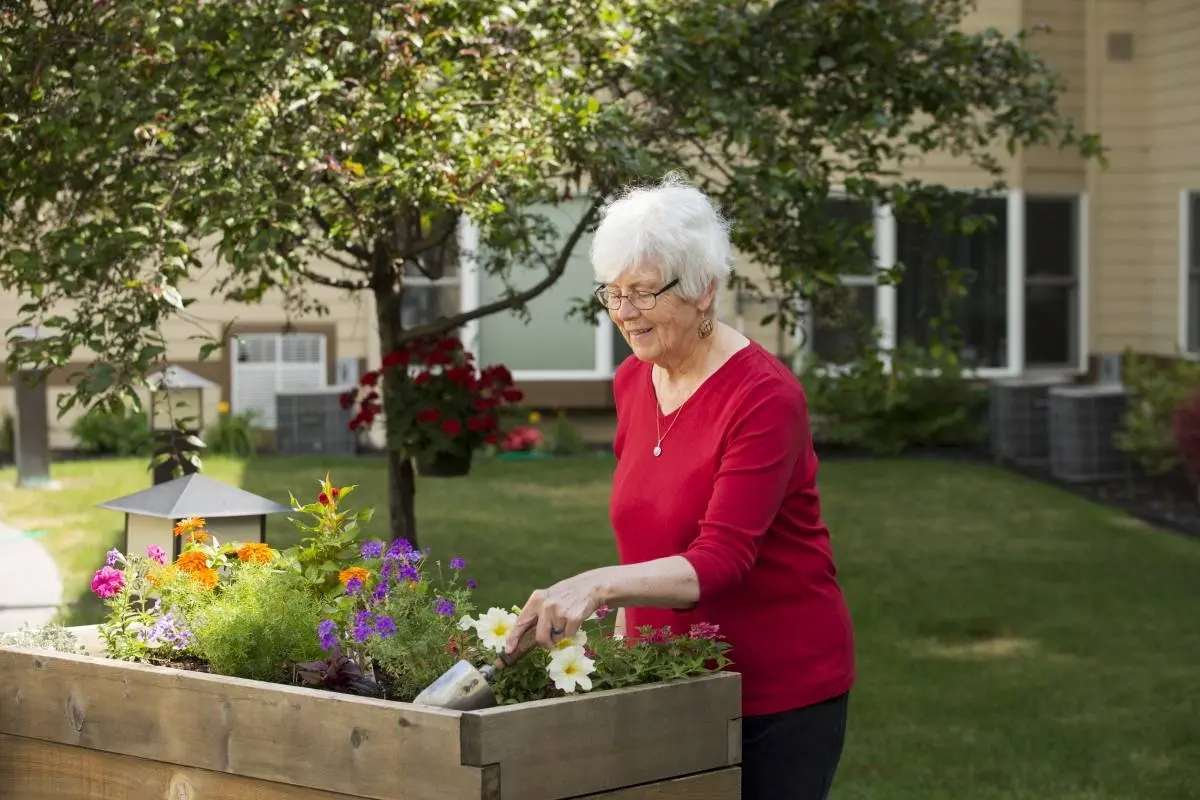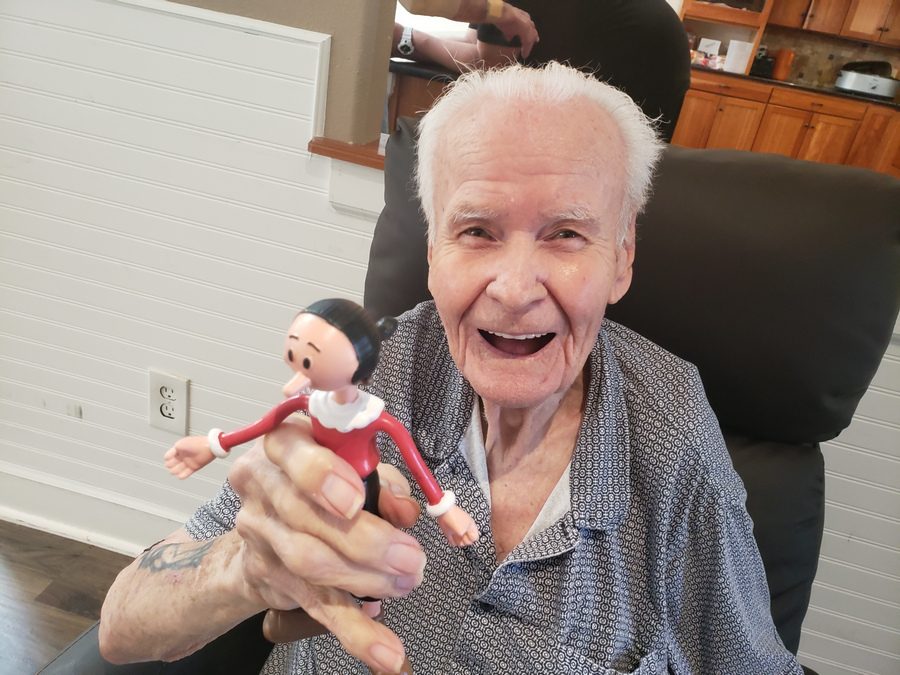Personalized Memory Care for Dementia in a Secure Space
Wiki Article
Everything About Memory Care Solutions: Why Tiny Memory Treatment Houses Are a Great Choice
Memory treatment solutions play a crucial function in supporting individuals with Alzheimer's and dementia. Small memory care homes stand apart for their tailored technique and intimate setting. With reduced staff-to-resident ratios, these homes foster more powerful connections and customized care. Homeowners profit from boosted social interactions and a safe setting. As households discover choices, understanding the unique benefits of small memory care homes comes to be important. What elements should be thought about when picking the ideal home?Recognizing Memory Care Services
While many may recognize with general elderly care alternatives, recognizing memory care services is important for households dealing with the challenges of cognitive decrease. Memory care especially satisfies individuals with problems such as Alzheimer's condition and various other types of mental deterioration. These services offer an organized environment that concentrates on improving the quality of life for residents with specialized treatment and support.Memory care centers are designed to guarantee safety and security and protection, usually including protected atmospheres to stop wandering. Educated employee are offered around the clock to aid with everyday tasks, medication administration, and individual treatment. In addition, memory care programs commonly consist of cognitive excitement tasks, tailored to involve citizens and promote mental health. Households can benefit from comprehending these solutions, as they make it possible for educated choices concerning their loved ones' treatment, making certain that their specific requirements and choices are attended to in a supportive and caring manner.The Benefits of Tiny Memory Care Houses
Little memory care homes use distinctive advantages that can significantly enhance the top quality of life for citizens with cognitive disabilities. One considerable benefit is the intimate environment, which permits for customized communications among team and homeowners. This smaller setting cultivates purposeful relationships, minimizing sensations of isolation and anxiety frequently experienced by individuals with memory issues.Additionally, the reduced staff-to-resident ratio in small memory care homes enables caretakers to provide even more alert supervision and assistance. This strategy not only boosts security however also promotes a sense of safety and security for the residents.Moreover, small memory care homes can adapt promptly to the distinct demands and choices of each local, enabling for a much more homey atmosphere. Such an environment can encourage social interaction and participation in tasks, ultimately improving the daily experiences of those living with cognitive disabilities.Personalized Care Program for Homeowners
Customized care plans are important in memory treatment homes, as they satisfy the one-of-a-kind needs and preferences of each resident. These plans start with comprehensive analyses conducted by competent experts, that examine cognitive capabilities, case history, and individual passions. This tailored strategy assurances that care is not just efficient yet likewise considerate of each person's dignity and autonomy.Moreover, personalized care strategies are flexible, enabling changes as homeowners' requirements develop over time. This adaptability fosters a sense of security and knowledge, which is vital for individuals dealing with memory obstacles. Caretakers are educated to apply these plans regularly, giving support that lines up with the homeowners' regimens and preferences.Ultimately, customized treatment plans improve the quality of life for locals by advertising wellness, engagement, and independence, making them a fundamental facet of memory care solutions in small memory care homes.Producing a Home-Like Atmosphere
Creating a home-like environment is important for fostering convenience and familiarity in memory care setups, as it substantially impacts homeowners' emotional well-being. Tiny memory care homes frequently prioritize individualized touches, such as cozy color palettes, family members pictures, and acquainted furniture plans, which assist citizens really feel more at simplicity. Incorporating elements similar to a standard home, like comfy home and public areas, motivates a feeling of belonging.Moreover, making use of natural light and outdoor rooms can improve the atmosphere, advertising leisure and peace. Team member play a significant function in keeping this setting by involving with locals in a compassionate fashion, treating them like family members. Regular tasks, such as cooking or horticulture, can also add to a home-like feeling, supplying opportunities for locals to take part in significant experiences. Generally, producing a nurturing atmosphere sustains cognitive function and psychological security, making it an essential facet of memory care services.
Enhanced Social Communication and Area
Improved social communication and neighborhood are essential components of memory treatment services. By fostering individualized social engagement and developing a family-like ambience, these solutions promote purposeful connections amongst locals. Team occasions and tasks further motivate engagement, assisting people feel a lot more included and supported.Individualized Social Involvement
While social interaction is essential for overall wellness, numerous people with memory impairments commonly have a hard time to engage meaningfully with others. Customized social interaction in memory care homes addresses this challenge by developing tailored tasks that satisfy homeowners' distinct rate of interests and capacities. By concentrating on specific preferences, caretakers can promote links that resonate deeply with each individual. Activities such as art treatment, songs sessions, and assisted conversations advertise cognitive excitement and psychological expression. In addition, little team settings motivate friendship and permit for even more intimate communications, enhancing feelings of belonging. This approach not just deals with feelings of seclusion but also empowers locals to preserve a feeling of identity, ultimately adding to enhanced psychological wellness and quality of life.Family-like Atmosphere
In a memory treatment setup, fostering a family-like atmosphere greatly boosts social communication and develops a sense of neighborhood among residents. Smaller memory treatment homes typically focus on intimate environments, permitting citizens to create closer connections with one another and team participants. This nurturing atmosphere promotes trust, which is essential for individuals with memory impairments. Citizens are more probable to talk and share experiences, developing a helpful network that reduces sensations of loneliness. The experience of shared areas and regimens adds to a sense of belonging, even more encouraging social communication (personalized memory care). In such settings, emotional bonds flourish, resulting in improved total wellness and a better of life for locals as they browse their daily experiences togetherTeam Activities and Occasions

Safety and Safety Functions in Tiny Houses
Many little homes designed for memory treatment include vital security and safety functions to ensure the health of homeowners. These homes typically make use of safe entry and exit indicate stop roaming, an usual issue amongst people with memory disabilities. Additionally, security systems and alarm mechanisms improve monitoring, making certain that personnel can quickly respond to any kind of uncommon activities.Interior layouts are tailored for safety, with reduced hazards such as clutter-free pathways and sharp corners. Handrails and non-slip floor covering are generally mounted to reduce the threat of drops. Employee are learnt emergency procedures, ensuring they are gotten ready for various situations.Moreover, personalized care strategies may consist of evaluation of private safety and security needs, giving customized options for each and every homeowner. On the whole, these safety and security and protection features produce a caring environment where locals can grow while keeping their dignity and self-reliance.Exactly how to Choose the Right Memory Care Home
Just how can households assure they choose the most suitable memory care home for their loved ones? The choice calls for mindful consideration of a number of aspects. First, families ought to evaluate the center's team qualifications and training, guaranteeing that caregivers are experienced in managing memory-related problems. Next, it's essential to evaluate the home's setting, concentrating on safety and security functions and whether it cultivates a feeling of community and belonging. Going to the facility can offer insight into daily activities and the social environment, which are crucial for psychological stimulation and emotional wellness. Additionally, families ought to ask about the care plans supplied, guaranteeing they are customized to specific requirements. Taking into consideration the home's location and availability for family members brows through can contribute to a smoother change. By resolving these facets, households can make an informed choice that prioritizes their enjoyed one's convenience and high quality of life in a memory treatment setup.Frequently Asked Concerns
What Qualifications Should Team Members in Memory Treatment Residences Have?
Personnel members in memory care homes should have appropriate qualifications, experience in mental deterioration treatment, solid communication skills, and empathy. Ongoing training in behavioral administration and restorative treatments improves their capability to sustain citizens properly.Exactly How Do Memory Care Solutions Differ From Conventional Assisted Living?
Memory care solutions focus especially on people with memory disabilities, giving specific support and organized settings. On the other hand, typical assisted living uses basic site link support with day-to-day activities, doing not have the customized approach necessary for those with cognitive obstacles.What Kinds of Activities Are Used in Memory Treatment Houses?
Memory treatment homes normally supply a variety of activities created to engage citizens. Usual options consist of art treatment, music sessions, cognitive video games, linked here workouts, gardening, and social events, all targeted at improving wellness and cognitive function.Can Homeowners Bring Their Own Possessions to Memory Treatment Homes?
Homeowners can typically bring their very own belongings to memory treatment homes, permitting them to individualize their home - personalized memory care. This technique helps create an acquainted environment, promoting comfort and a sense of identification for the people
Just How Are Household Members Entailed in the Care Refine?
Relative play an important duty in the care process, typically getting involved in decision-making, going to treatment conferences, and providing psychological support. Their participation fosters a collective atmosphere, enhancing the homeowner's total wellness and lifestyle. While lots of might be familiar with general senior care alternatives, recognizing memory care services is vital for families dealing with the challenges of cognitive decline. These solutions provide an organized environment that concentrates on enhancing the top quality of life for locals through specialized treatment and support.Memory treatment facilities are developed to assure safety and protection, usually including secured atmospheres to stop straying. Personalized care plans are important in memory treatment homes, as they cater to the unique demands and choices of each citizen. Personnel participants in memory care homes must have pertinent accreditations, experience in dementia care, strong communication skills, and concern. Memory care solutions concentrate especially on individuals with memory problems, giving specific support and organized settings.Report this wiki page